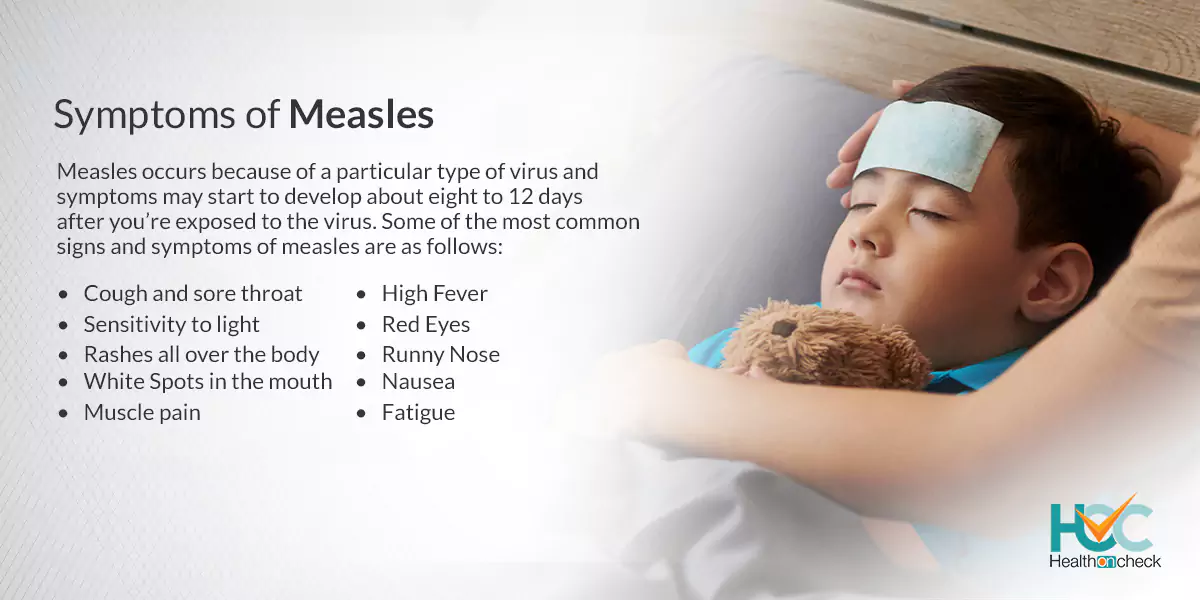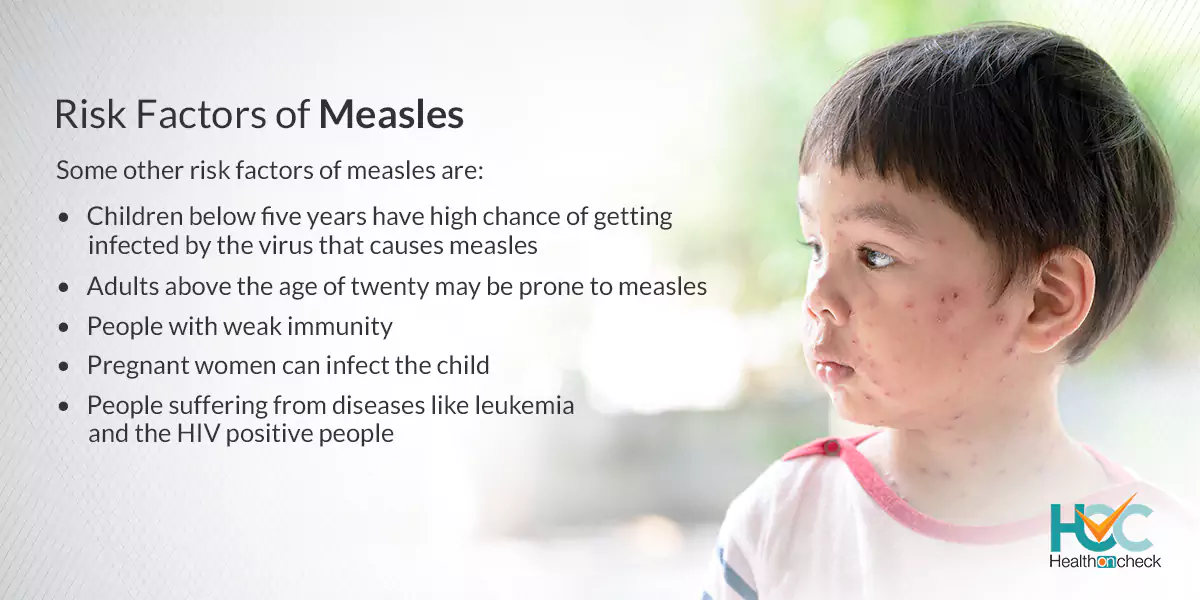All about Measles

What is Measles?
Measles is a contagious viral respiratory disease that creates ailments such as high fever malaise, cough, coryza, conjunctivitis, pathognomonic enanthema (Koplik spots), and maculopapular rash. The rash appears after fourteen days of you being affected by measles and gradually spreads all over your body, right from head to the head to the trunk to the lower extremities. Though vaccines and medication are available for this disease, it is quite a life-threatening disease and a large number of people die because of it. It is mainly a children related disease but sometimes affects adults also.
What are the Types of Measles?
There are two types of measles. Though they share some common symptoms, they are caused by different viruses:
- Standard measles
Also known as red measles, or hard measles, this type of measles is caused by the rubeola virus.
- German measles
Also known as rubella, is a totally distinct illness which is caused by the rubella virus and is typically a milder infection as compared to standard measles.

What are the Symptoms of Measles?
Measles occurs because of a particular type of virus and symptoms may start to develop about eight to 12 days after you’re exposed to the virus. Some of the most common signs and symptoms of measles are as follows:
- High Fever
- Cough and sore throat
- Red Eyes
- Sensitivity to light
- Rashes all over the body
- Runny Nose
- White Spots in the mouth
- Nausea
- Fatigue
- Muscle pain
What are the Causes of Measles?
Measles is a viral infection caused by an exceedingly contagious virus called morbillivirus. It is assessed that about 90 percent of unvaccinated people will be infected by measles if they get in contact with someone with measles. The spread of measles is similar to colds and flu, i.e. breathing in the airborne water droplets coughed or sneezed out by someone suffering from measles and is the carrier of the virus. Although physical contact, coughing, and sneezing are the main causes of infection, it is also quite possible to get measles merely by breathing in contaminated air or touching a contaminated surface and then breathing in the droplets because this particular virus can live for up to two hours on surfaces and in airspace after the infected person is gone.
Along with the above-mentioned causes, a pregnant woman with measles can infect the newborn infant, either during pregnancy or delivery.

What are the Risk Factors Associated with Measles?
The most common risk factor of measles is not being vaccinated as it is very rare in countries where most of the people are vaccinated.
Some other risk factors of measles are
- Children below five years have high chance of getting infected by the virus that causes measles
- Adults above the age of twenty may be prone to measles
- People with weak immunity
- Pregnant women can infect the child
- People suffering from diseases like leukemia and the HIV positive people
How is Measles Diagnosed?
If you notice signs and symptoms of measles, don’t waste time and meet your doctor immediately. He will physically examine you and prescribe you to go through some tests to confirm whether it is measles or not. The most common way of diagnosing measles is the rash which is different from other normal types of rashes. The rash that occurs because of measles is red in colour and first forms in the head and slowly spreads to other parts of the body. There will be tiny white spots on top of the red rash.
Apart from the rash, the doctor may prescribe some tests in the laboratory to find out the measles inducing virus. Samples of blood, secretions from the nose and throat, or urine may be used for the tests.
What Are The Treatment Options for Measles?
There are no medicines or cure available for measles and most of the time it goes away by itself in 10 to 14 days. It is caused by a virus and not bacteria because of which antibacterial medicines are of no use. The best way to not get infected by the measles virus is by getting vaccinated.
When someone suffers from measles, doctors give treatments to ease the symptoms and make you fill better until the immune system of the body clears the infection. Normally treatments for measles include:
- The doctor may recommend an ample amount of rest till recovery
- Medicines such as acetaminophen or ibuprofen to cure aches, pains, or fever
- Drinking a good amount of fluids like water, fresh juice, and herbal tea to boost immunity and prevent dehydration
- Using hot water to gargle to ease down a sore throat
- Avoid harsh lights to control sensitivity to light
- Vitamin A supplements to avert other complications of measles
What are the Complications of Measles?
In most cases of measles, the measles virus gets out of the body after around seven to 10 days and there are fewer chances of further complications. However, exceptions are there and sometimes there may be serious complications that can be severe and life-threatening. Most of the complications happen to certain groups of people such as:
– Children below the age of five
– Malnourished people especially children with poor diet
– People with a weak immune system
– Though children are mostly affected by measles but adults above the age of twenty also have the chance of getting infected
– Pregnant women and the newborn child
Some further complications may arise because of measles and if not treated properly, it can cause severe health-related problems and even death:
– Diarrhea
– Vomiting
– Ear infections
– Encephalitis causes inflammation of the brain, and it can result in seizures, hearing loss, or learning disabilities.
– Infection of the airways and lungs, such as pneumonia, bronchitis, or croup which can be life-threatening
Living with Measles
Measles is not a long term disease as it lasts for around 10 to 14 days but during that period one can have many conditions which makes them unable to work and live like before the infection took place. You may get tired easily and spend more time in bed than anywhere else. Also many times measles make eyes very sensitive to lights which can be irritating. You may not be able to eat much as measles can lead to lack of appetite also. During the course of measles, it’s advisable to take rest as much as you can as it helps in improving the immunity.
Whom to Consult?
Though measles itself is not life-threatening, the complications of it can be so if you notice signs and symptoms of measles consult a doctor as soon as possible. Doctor will check you thoroughly and then prescribe treatments to ease down the symptoms and avert any complications.




